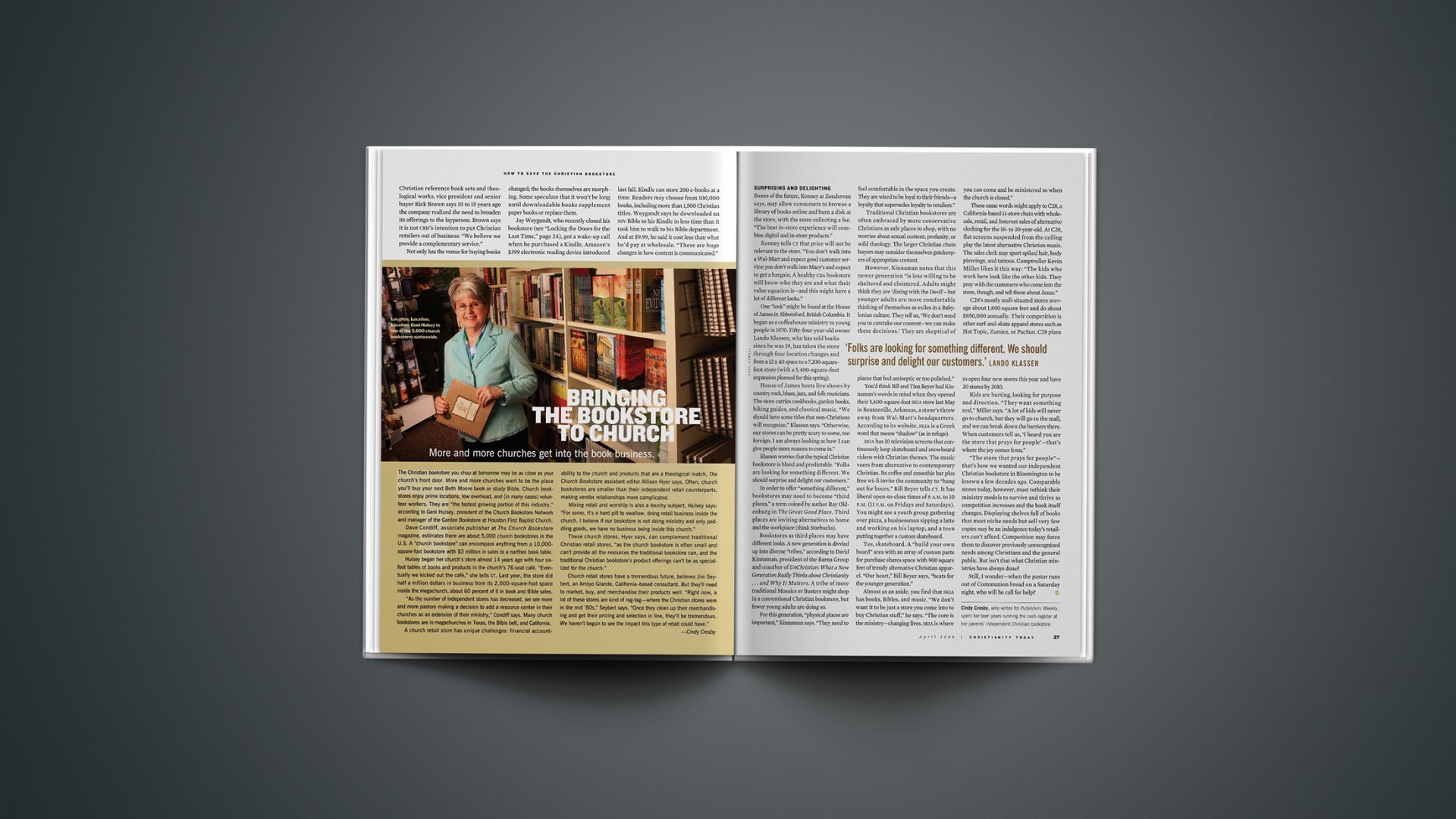The Christian bookstore you shop at tomorrow may be as close as your church’s front door. More and more churches want to be the place you’ll buy your next Beth Moore book or study Bible. Church bookstores enjoy prime locations, low overhead, and (in many cases) volunteer workers. They are “the fastest growing portion of this industry,” according to Geni Hulsey, president of the Church Bookstore Network and manager of the Garden Bookstore at Houston First Baptist Church.
Dave Condiff, associate publisher at The Church Bookstore magazine, estimates there are about 5,000 church bookstores in the U.S. A “church bookstore” can encompass anything from a 10,000-square-foot bookstore with $3 million in sales to a narthex book table.
Hulsey began her church’s store almost 14 years ago with four six-foot tables of books and products in the church’s 76-seat café. “Eventually we kicked out the café,” she tells CT. Last year, the store did half a million dollars in business from its 2,000-square-foot space inside the megachurch, about 60 percent of it in book and Bible sales.
“As the number of independent stores has decreased, we see more and more pastors making a decision to add a resource center in their churches as an extension of their ministry,” Condiff says. Many church bookstores are in megachurches in Texas, the Bible belt, and California.
A church retail store has unique challenges: financial accountability to the church and products that are a theological match, The Church Bookstore assistant editor Allison Hyer says. Often, church bookstores are smaller than their independent retail counterparts, making vendor relationships more complicated.
Mixing retail and worship is also a touchy subject, Hulsey says: “For some, it’s a hard pill to swallow, doing retail business inside the church. I believe if our bookstore is not doing ministry and only peddling goods, we have no business being inside this church.”
These church stores, Hyer says, can complement traditional Christian retail stores, “as the church bookstore is often small and can’t provide all the resources the traditional bookstore can, and the traditional Christian bookstore’s product offerings can’t be as specialized for the church.”
Church retail stores have a tremendous future, believes Jim Seybert, an Arroyo Grande, California–based consultant. But they’ll need to market, buy, and merchandise their products well. “Right now, a lot of these stores are kind of rag-tag—where the Christian stores were in the mid ’80s,” Seybert says. “Once they clean up their merchandising and get their pricing and selection in line, they’ll be tremendous. We haven’t begun to see the impact this type of retail could have.”
Copyright © 2008 Christianity Today. Click for reprint information.
Related Elsewhere:
This article and “Locking the Doors for the Last Time” accompanied “How to Save the Christian Bookstore.”
The 2008 books issue of Christianity Today also included the annual book awards.








